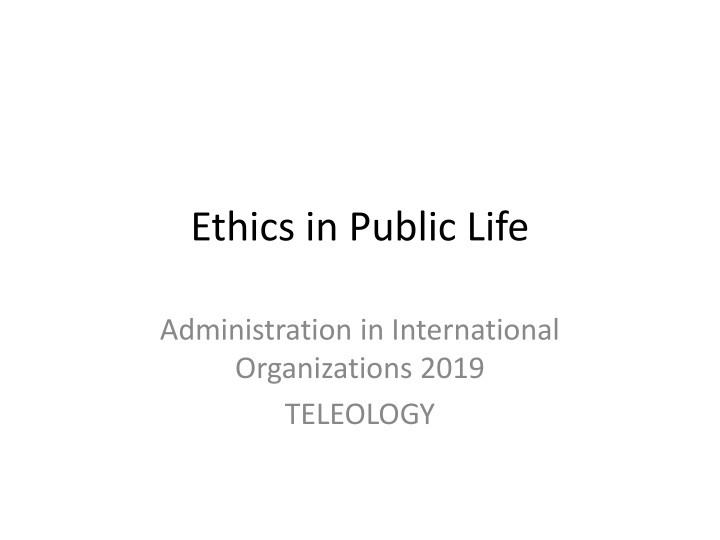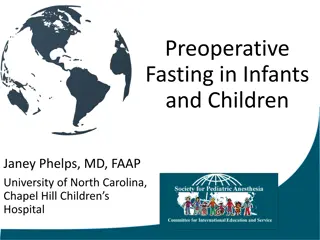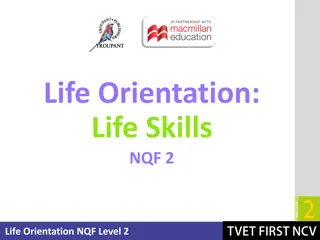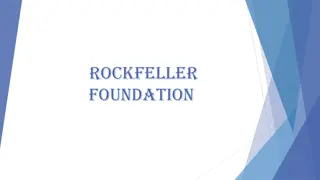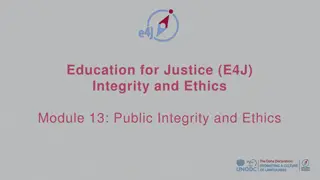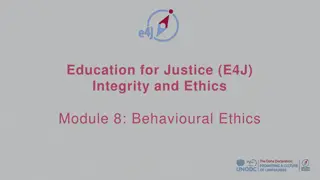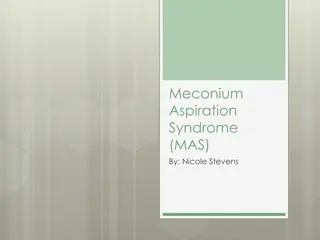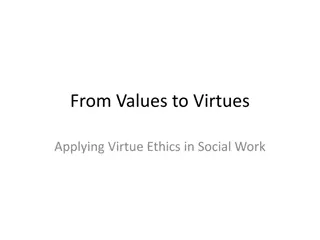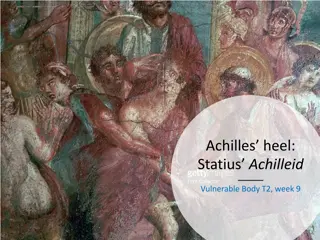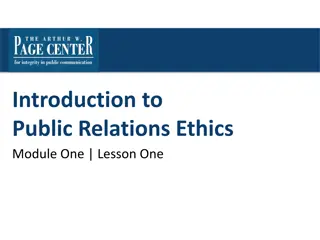Teleology: The Ethical Foundation of Aspiration in Public Life
Teleology is the philosophical concept that human actions are purposeful and directed towards achieving aspirations. This ethical framework, exemplified by Aristotle, suggests that the intrinsic good guides all endeavors, with happiness as the ultimate goal. Despite challenges in defining and identifying universal aspirations, teleology underscores the importance of aligning actions with noble intentions in public life and international organizations.
Download Presentation

Please find below an Image/Link to download the presentation.
The content on the website is provided AS IS for your information and personal use only. It may not be sold, licensed, or shared on other websites without obtaining consent from the author.If you encounter any issues during the download, it is possible that the publisher has removed the file from their server.
You are allowed to download the files provided on this website for personal or commercial use, subject to the condition that they are used lawfully. All files are the property of their respective owners.
The content on the website is provided AS IS for your information and personal use only. It may not be sold, licensed, or shared on other websites without obtaining consent from the author.
E N D
Presentation Transcript
Ethics in Public Life Administration in International Organizations 2019 TELEOLOGY
Teleology: basic idea Humans deeds are purposive by nature; they aim at something. An attempt to ground ethics on aspiration which should inspire moral agents to particular actions. The assessment of actions is ruled by the role they play in realization of the aspiration.
Main problems of teleology 1. What is such aspiration? 2. Is it possible to indicate one intrinsic aspiration for all the people? 3. How may we know what are the exact demands stemming from general aspiration?
Good as aspiration What is your aim, Professor Aristotle?
Good as aspiration Every art and every inquiry, and similarly every action and pursuit, is thought to aim at some good; and for this reason the good has rightly been declared to be that at which all things aim. Aristotle, Nicomachean Ethics
Good puzzles (a) A) What is good? The impossibility of defining good (Moore 1903, Principia Ethica) Aristotle: no such attempt. Practical way instead.
Good puzzles (b) B) Is there any intrinsic good? [Good] seems different in different actions and arts; it is different in medicine, in strategy, and in the other arts likewise. What then is the good of each? Surely that for whose sake everything else is done. In medicine this is health, in strategy victory, in architecture a house, in any other sphere something else, and in every action and pursuit the end; for it is for the sake of this that all men do whatever else they do. Therefore, if there is an end for all that we do, this will be the good achievable by action, and if there are more than one, these will be the goods achievable by action. ( ) we call final without qualification that which is always desirable in itself and never for the sake of something else.
Now such a thing happiness, above all else, is held to be; for this we choose always for self and never for the sake of something else, but honour, pleasure, reason, and every virtue we choose indeed for themselves (for if nothing resulted from them we should still choose each of them), but we choose them also for the sake of happiness, judging that by means of them we shall be happy. Happiness, on the other hand, no one chooses for the sake of these, nor, in general, for anything other than itself. What are the demands of happiness?
Moralizing happiness Aristotle: A happy life is a virtuous life 'the virtue of man will be the state of character [disposition] which makes a man good and which makes him do his own work well' [Nicomachean Ethics] Utilitarianism: Social principle: What counts in moral considerations is not only an individual pleasure of an agent, but a happiness of every potentially involved person 'the greatest happiness of the greatest number of people .
The change of perspective Not what ought we to do, or what ought we not to do, but what kind of person we should become. The main moral question is a question on a character of someone; as well as: how one's character is shaped by their deeds '[Virtue ethics asks about] virtues themselves, motives and moral character, moral education, discernment, friendship and family relationships, a deep concept of happiness, the role of the emotions in our moral life and the fundamentally important questions of what sort of person I should be and how we should live.' Stanford Encyclopedia of Philosophy, Virtue ethics moral wisdom or
The role of phronesis Phronesis: practical wisdom, prudence 'It is the mark of an educated man to look for precision in each class of things just so far as the nature of the subject admits; it is evidently equally foolish to accept probable reasoning from a mathematician and to demand from a rhetorician scientific proofs.' Aristotle, Nicomachean Ethics What is more important than an abstract moral code is a practical wisdom and life experience.
Relation between goods and virtues By a "practice" I am going to mean any coherent and complex form of socially established cooperative human activity through which goods internal to that form of activity are realized in the course of trying to achieve those standards of excellence which are appropriate to, and partially definitive of, that form of activity A. MacIntyre, After Virtue
Practices and goods There are the goods internal to the practice of chess which cannot be had in any way but by playing chess or some other game of that specific kind. We call them internal for two reasons: first, ( ) because we can only specify them in terms of chess or some other game of that specific kind and by means of examples from such games ( ); and secondly because they can only be identified and recognized by the experience of participating in the practice in question.
Practices, goods, and virtues A virtue is anacquired human quality the possession and exercise of which tends to enable usto achieve those goods which are internal to practices and the lack of whicheffectively prevents us from achieving any such goods.
Practices, goods, and virtues A virtue is anacquired human quality the possession and exercise of which tends to enable usto achieve those goods which are internal to practices and the lack of whicheffectively prevents us from achieving any such goods. A world champion in nose digging? Social nature of virtues
Who deserves an honour? Nobel Prize for a narrative imagination that with encyclopedic passion represents the crossing of boundaries as a form of life .
